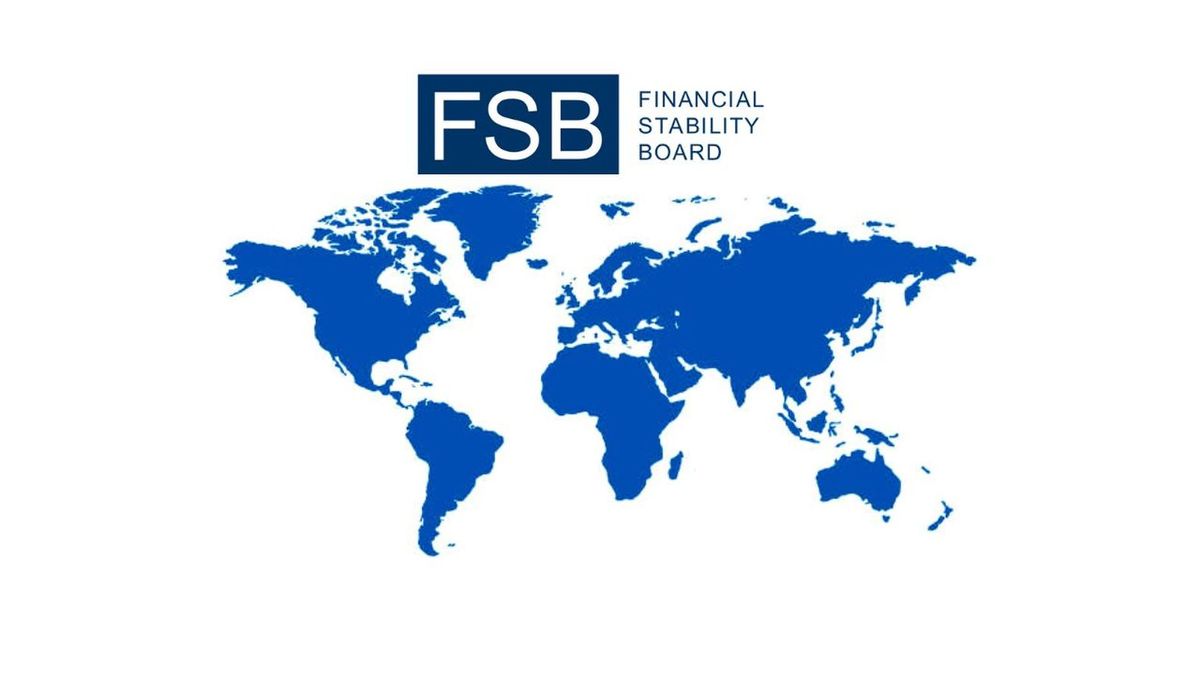
The FSB was founded in 2009, in the aftermath of the global financial crisis, and as the successor to the Financial Stability Forum (FSF). The FSB boasts members from all G20 countries, in addition to some of the world’s largest international organisations such as the World Bank, International Monetary Fund, and the OECD, as well as 10 other international organisations of the like. The FSB’s main administrative office is hosted in Basel, by the Bank of International Payments, and ran by FSB Chair, Klaas Knot, who is also the President of Nederlandsche Bank (the Dutch central bank), a member of the European central banks voting committee.
Though the guidelines and policies set forth by the FSB are not legally binding to its members, they operate on a “moral suasion and peer pressure” basis, aiming to facilitate internationally agreed upon policies and minimum standards, which members will then take forth to be used at the domestic level. The areas of their focus are as one might expect, cross-border payments, cyber resilience, accounting and auditing, derivatives markets and central counterparties, and benchmarking, with the development of the crypto asset industry, the FSB extended their focus to also include this area.
Across all publication types held upon the FSB website, 22 reference crypto-assets, with approximately 60% of those being published in 2022 alone. While some of these publications reference crypto-assets as part of a broader report, such as the 2022 FSB annual report on the promotion of global financial stability, others aim to address both crypto-assets and Stablecoins exclusively.
The FSB packaged their crypto regulation proposal into two reports. The first report aims to promote consistency and comprehensiveness with regard to the regulation and oversight of crypto-assets and markets, while the second report is fully focused on stablecoins. The authors introduced a special term “Global Stablecoin” (GSC) to emphasize the significance of this class of crypto-asset.
A decisive stance taken by the FSB, which can be seen throughout both of the respective reports, is “Same activity, same risk, same regulation”, where the FSB opine that crypto-asset providers and intermediaries performing similar functions to their traditional finance peers, should also be subject to the same or equivalent regulation.
With regard to the FSB’s view on the risks involved with the stablecoins, they were quoted saying:
“High regulatory standards should apply to crypto-assets – such as stablecoins – that could be widely used as a means of payments and/or store of value, as they could pose significant risks to financial stability. The proposed revisions high-level recommendations for the regulation, supervision, and oversight of “global stablecoin” arrangements strengthen the requirements for users’ redemption rights and for a robust stabilisation mechanism.”
It should be mentioned that the proposals published by the FSB, closely echo that of the European Union’s imminently expected MiCA legislation.
The call for public comments was met by responses from 49 organisations, individuals and private companies including: American Bankers Association, Binance, Cardano, Circle, Coinbase, ConsenSys, R3, and Ripple.
We Observed these responses, with some of the most thematic and compelling detailed below:
The need for regulation
In general, all respondents we observed commended the FSB on their efforts and emphasised the need for clearer and more comprehensive global regulation. The global nature of such regulation was indicated as an important characteristic of effective control of illegal activities and regulatory arbitrage.
Taxonomy
One of the most frequent comments was about inconsistency of terms in different regulatory initiatives. All the respondents indicated the need for greater taxonomy, leading to globally uniformed and clearly understood classifications.
An opposition to “Same activity, same risk, same regulation”
The Cardano foundation, Coinbase, Association for the development of Crypto-Assets, International Digital Asset Exchange Association and the majority of “crypto native” respondents, slightly opposed one of the main themes seen throughout both of the FSB’s publications, that is “Same activity, same risk, same regulation”, stating that though parallels can be seen between crypto-assets and traditional finance, the activities and risks involved are most certainly not the same.
Coinbase brought the example of “segregation of activities” in the legacy regulatory approach, which was not applicable to DeFi setups.
Comments regarding stablecoin specific regulation
Many respondents including Binance, EY, and Standard Chartered, noted overlaps in crypto-asset and stablecoin report requirements, that can be eliminated with a single blanket rule set.
Coinbase openly objected to the operational regulation of stablecoins within their response, while the Crypto Council for Innovation advocated that both Banking and non-banking entities should be permitted to issue stablecoins.
Here are some quotes from key respondents:
Coinbase: “Cryptoasset markets should not be bound by historical path dependence.”
American Bankers association: “Technological evolution is rapid, and highly prescriptive regulation cannot be adjusted quickly enough to remain current. Inflexibility would constrict financial inclusion and other benefits of emerging technology.”
Blockchain for Europe: “The governance, accountability, and compliance requirements suggested by the FSB are the same for DeFi as they are for "regular" crypto-asset operations, which is not practical nor appropriate given the nature of the DeFi industry.”
Crypto Council for Innovation: “The FSB’s recommendation for stablecoin — that reserves should be “at least equal” to the amount of an issuer’s outstanding stablecoins, consist only of “conservative” assets, “and not derive its value from algorithms” — would result in negative and unintended consequences for the blockchain ecosystem.”
Association for the development of crypto assets: “DeFi regulation without prior coordination will be at best ineffective and at worst destructive at the national level for those countries that would take the initiative to introduce legislation on this ecosystem.”
Revolut: “We believe the report does not sufficiently assess the likelihood of rapid stablecoin adoption over the next 24-36 months given the increasing regulatory clarity which is emerging in a number of key jurisdictions.”
US Chamber of Commerce: “We encourage the FSB to consider the following principles: cost-benefit, proportionality, global consideration, activity based approach.”
